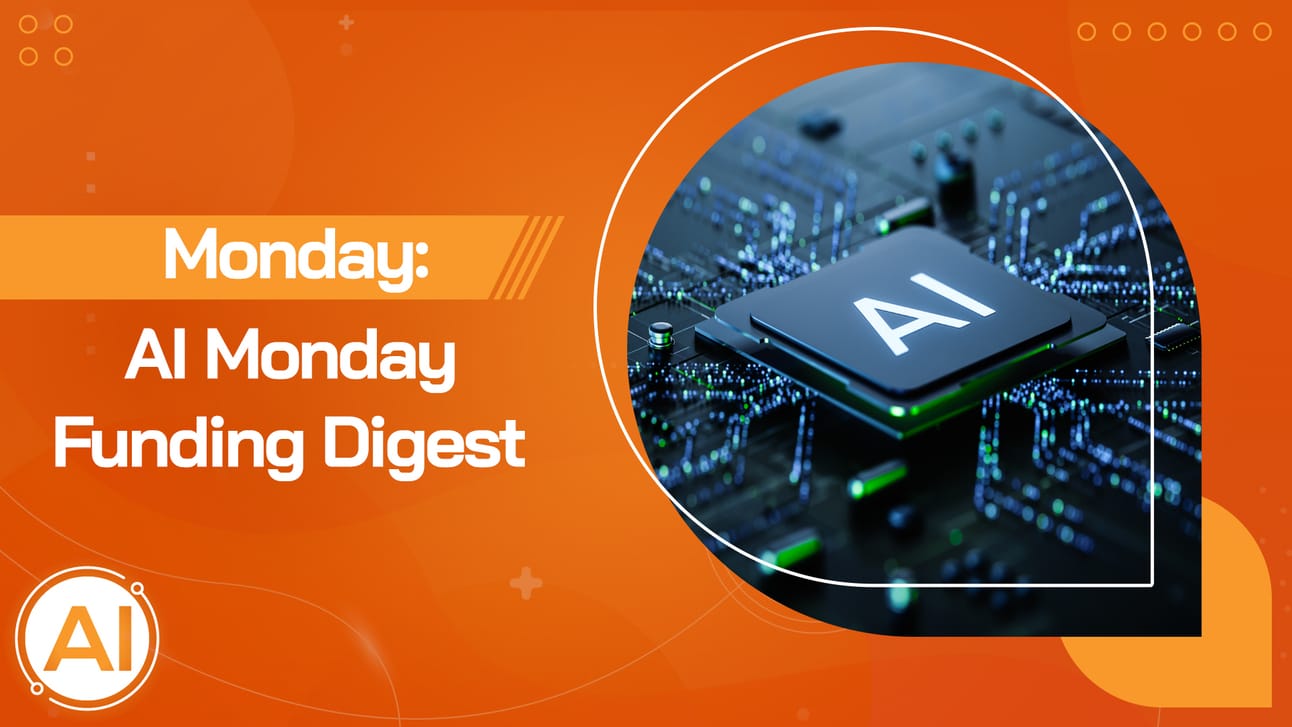Stop Digital Shoplifters Before They Drain Your Profits
"Digital shoplifting" sneaks in after payment, costing stores shipping, revenue, and chargebacks. Chargeflow Prevent stops it before fulfillment. Free for your first 1,000 transactions.

Welcome
Welcome to today's edition of AI Business Weekly. From Microsoft's nearly $10 billion commitment to former bitcoin mining infrastructure to OpenAI's historic $38 billion partnership with Amazon, today's stories reveal AI's voracious appetite for compute power and the fierce competition to secure it. As crypto miners reinvent themselves as AI infrastructure providers and a stealth startup challenges the transformer architecture itself, we're witnessing a fundamental restructuring of the AI ecosystem—one where yesterday's bitcoin farms become tomorrow's AI factories, and cloud allegiances shift overnight. Let's dive in.
Microsoft's $9.7 Billion Deal with IREN Shows Bitcoin Miners' AI Pivot Is Paying Off
Childress, Texas — Microsoft has signed a $9.7 billion deal with former bitcoin miner IREN, marking one of the largest validations yet of the crypto mining industry's strategic pivot to artificial intelligence infrastructure. The Australia-based company, now a neo-cloud operator specializing in data centers for AI workloads, announced Monday that Microsoft has become its largest customer under a five-year agreement. The deal will provide Microsoft access to Nvidia chips at IREN's Childress, Texas facility, transforming infrastructure originally built for cryptocurrency mining into premium AI compute capacity. The partnership underscores how companies that invested heavily in power infrastructure and GPU capabilities for crypto are now positioned as critical players in the AI infrastructure race. Read more

OpenAI Signs $38 Billion Compute Deal with Amazon, Partnering with Cloud Leader for First Time
OpenAI has announced a landmark $38 billion agreement with Amazon Web Services, marking the company's first major partnership with the cloud leader and its most significant move away from exclusive reliance on Microsoft. Under the deal, OpenAI will immediately begin accessing Nvidia's graphics processing units through AWS infrastructure. The partnership, which extends through 2026 and beyond, provides OpenAI with the flexibility to scale its compute infrastructure as it develops increasingly sophisticated AI models. The massive agreement signals OpenAI's strategy to diversify its cloud partnerships following the end of its exclusive arrangement with Microsoft earlier this year, reflecting the critical importance of securing diverse, scalable compute resources for frontier AI development. Read more

Source.ag Raises $17.5M for Applied AI in CEA, Pushing Total Funding Past $60M
Source.ag has successfully closed its Series B funding round, raising $17.5 million to advance applied artificial intelligence in controlled environment agriculture. The investment was led by Astanor, with strategic participation from seed breeder Enza Zaden and grower cooperative Harvest House. This capital injection brings Source.ag's total funding to over $60 million raised in just five years. The company's AI technology optimizes growing conditions and crop yields in controlled agricultural environments, representing the application of sophisticated machine learning to sustainable food production challenges. Read more

Donut Labs Raises $15M Seed Funding to Build AI-Powered Crypto Trading Browser
Donut Labs has raised $22 million across pre-seed and seed rounds in just six months, with backing from BITKRAFT, Makers Fund, Sky9 Capital, and Hack VC. The firm is developing Donut Browser, an AI-driven agentic browser that automates cryptocurrency trading, risk analysis, and on-chain strategy execution. The product has already attracted over 160,000 users on its waitlist, signaling strong market demand for AI-native trading tools amid rising decentralized finance volumes. The substantial funding and waitlist momentum reflect growing interest in agentic AI systems that can autonomously navigate the complexity of crypto markets and execute sophisticated trading strategies. Read more

The Beginning of the End of the Transformer Era? Neuro-Symbolic AI Startup AUI Announces New Funding at $750M Valuation
New York City — Augmented Intelligence Inc (AUI), a stealth startup seeking to move beyond the transformer architecture that powers today's leading large language models like ChatGPT and Gemini, has raised $20 million in a bridge SAFE round at a $750 million valuation cap. The funding brings AUI's total capital raised to nearly $60 million as the company develops what it describes as neuro-symbolic AI—a fundamentally different approach to artificial intelligence that could challenge the architectural foundations of current AI systems. While details remain limited, the substantial valuation and investor interest suggest significant confidence in AUI's vision for post-transformer AI architectures. The company's emergence highlights ongoing questions about whether today's dominant AI paradigm represents the optimal path forward or merely the first chapter in machine intelligence. Read more

📢 The Great AI Infrastructure Realignment
Today's announcements reveal a seismic shift in AI's infrastructure landscape, with over $65 billion in deals announced in a single day. Microsoft's willingness to invest nearly $10 billion in a former bitcoin miner's facilities demonstrates how the economics of AI compute have created unexpected winners—companies with power capacity and GPU expertise suddenly command premium valuations regardless of their original purpose. Meanwhile, OpenAI's $38 billion pivot to AWS shatters the myth of permanent cloud allegiances, signaling that even the deepest partnerships take second place to securing adequate compute at scale. As AUI raises capital to challenge the transformer architecture itself, we're seeing competition emerge at every layer of the stack: from fundamental AI paradigms to chip access to cloud partnerships. The message is clear: in the race to build AGI, infrastructure flexibility isn't just an advantage—it's existential.






